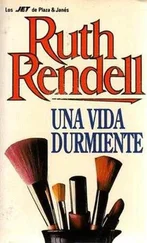He could remember quite precisely when this need had first come upon him. The need to use darkness. He was twelve. Auntie Gracie had had two friends to tea and they were sitting in the back round the fire, drinking from and eating off that very china he had set out in vain for Anthony Johnson. Talking about him. He would have liked, as he would often have liked, to retreat to his own bedroom. But this was never allowed except at bedtime when, as soon as he was in bed, Auntie Gracie would turn off the light at the switch just inside the door and forbid him on pain of punishment to turn it on again. The landing light was always left on, so Arthur wasn’t afraid. He would have preferred, in fact longed for, enough light to read by or else total darkness.
Mrs. Goodwin and Mrs. Courthope, those were the friends’ names. Arthur had to sit being good, being a credit to Auntie Gracie. They talked a lot about some unnamed boy he supposed must be himself from the mysterious veiled way they spoke and the heavy meaningful glances exchanged.
“Of course it puts a stigma on a child he can never shake off,” Mrs. Goodwin said.
Instead of answering, Auntie Gracie said, “Go into the other room, Arthur, and get me another teaspoon out of the sideboard. One of the best ones, mind, with the initial on.”
Arthur went. He didn’t close the door after him but one of them closed it. The hall light was on so he didn’t put on the front room light, and as a result he opened the wrong drawer by mistake. As he did so a mouse scuttered like a flash across the sideboard top and slithered into the open drawer. Arthur slammed it shut. He took an initialled spoon out of the other drawer and stood there, holding the spoon, his heart pounding. The mouse rushed around inside the drawer, running in desperate circles, striking its head and body against the wooden walls of its prison. It began to squeak. The cheep-cheep sounds were like those made by a baby bird, but they were sounds of pain and distress. Arthur felt a tremendous deep satisfaction that was almost happiness. It was dark and he was alone and he had enough power over something to make it die.
Strangely enough, the women didn’t seem to have missed him, although he had been gone for quite five minutes. They stopped talking abruptly when he came in. After Mrs. Goodwin and Mrs. Courthope had gone, Auntie Gracie washed up and Arthur dried. She sent him to put the silver away which was just as well, because if she had gone she would have heard the mouse. It had stopped squeaking and was making vague brushing, scratching sounds, feeble and faint. Arthur didn’t open the drawer. He listened to the sounds with pleasure. When he did at last open it on the following evening, the mouse was dead, and the drawer, which contained a few napkin rings and a spare cruet, spattered all over with its blood. Arthur had no interest in the corpse. He let Auntie Gracie find it a week or so later, which she did with many shrieks and shudders.
Darkness. He thought often in those days of the mouse afraid and trapped in the dark and of himself powerful in it. How he longed to be allowed out in the streets after dark! But even when he was at work and earning Auntie Gracie wanted him to come straight home. And he had to please her, he had to be worthy of her. Besides, defiance of her was too enormous an enterprise even to consider. So he went out in the evenings only when she went with him, and once a week they went together to the Odeon that was now Indian and called the Taj Mahal. Until one night when old Mr. Grainger, catching him in the yard as he was sweeping up at five-thirty, sent him over to the other side of Kenbourne to pick up an electric drill some workman had been careless enough to leave behind in a house where he was doing a rewiring job. He’d tell Miss Johnson on his way home, he told Arthur, and he was to cut along as fast as he could.
Arthur collected the drill. The darkness—it was midwinter-was even lovelier than he thought it would be. And how very dark it was then, how much darker than nowadays! The black-out. The pitch darkness of wartime. In the dark he brushed against people, some of whom carried muffled torches. And in a winding little lane, now destroyed and lost, replaced by a mammoth housing complex, he came up against a girl hurrying. What had made him touch her? Ah, if he knew that he would know the answer to many things. But he had touched her, putting out his hand, for he was already as tall as a man, to run one finger down the side of her warm neck. Her scream as she fled was more beautiful in his ears than the squeaking of the mouse. He stared after her, into the darkness after her, emotion surging within him like thick scented liquid boiling. He knew what he wanted to do, but thought intervened to stay him. He had read the newspapers, listened to the wireless, and he knew what happened to people who wanted what he wanted. No doubt, it was better not to go out after dark. Auntie Gracie knew best. It was almost as if she had known why, though that was nonsense, for she had never dreamed …
His own dreams had been troubling him this past fortnight, the consequence of frustration. Each evening at eleven, before going to bed, he had taken a last look out of his bedroom window to see the courtyard below aglow with light from Room 2. It seemed a personal affront and, in a way, a desecration of the place. Moreover, Anthony Johnson hadn’t been near him, had avoided all contact with him. Arthur wouldn’t have known he was in the house but for the arrival, and the subsequent removal from the hall table, of another of those Bristol letters, and of course that ever-burning light.
Then, on a Friday evening just before eight, it went out. Carrying his torch, Arthur let himself out of his flat and came softly down the top flight. He had heard the front door close, but that might have been Li-li Chan going out. Both she and Anthony Johnson closed it with the same degree of moderate care. And it must have been she, for as Arthur hesitated on the landing he saw Anthony Johnson appear in the hall below him. Arthur stepped back and immediately the front door closed. Through its red and green glass panels the shape of Anthony Johnson could be seen as a blur vanishing down the marble steps. No one, Arthur reasoned, went out at this hour if he didn’t intend to stay out for some time. He descended the stairs and, delaying for a moment or two to let the occupant of Room 2 get clear, left the house, crossed the lawn, and entered the side passage.
There was no moon. The darkness wasn’t total but faintly lit by the far-reaching radiance of street lamps and house lights, and the sky above, a narrow corridor of it, was a gloomy greyish-red; the darkness, in fact, of any slum backwater. And this passage resembled, with the colouring of Arthur’s imagination, some alleyway, leading perhaps from a high road to a network of shabby streets. The muted roar of traffic was audible, but this only heightened his illusion. He crossed the little court, all the muscles of his body tense and tingling, and opened the cellar door.
It was three weeks since he had been here, and being here at last after so much dread and anguish brought him a more than usually voluptuous pleasure. Even more than usual, it was nearly as good as the real thing, as Maureen Cowan and Bridget O’Neill. So he walked slowly between the jumbled metal rubbish, the stacks of wood and newspapers, his torch making a quivering light which snaked ahead of him. And there, in the third room, she was waiting.
His reactions to her varied according to his mood and his tensions. Sometimes she was no more than the instrument of his therapy, a quick assuagement. But there were times, and this was one of them, when strain and memory had so oppressed him and anticipation been so urgent that the whole scene and she in it were altered and aggrandised by enormous fantasy. So it was now. This was no cellar in Trinity Road but the deserted, seldom-frequented yard between a warehouse, say, and a cemetery wall; she no life-size doll but a real woman waiting perhaps for her lover. The light of his torch fell on her. It lit her blank eyes, then, deflecting, allowed shadows to play like fear on her face. He stood still, but he could have sworn she moved. There was no sanctuary for her, no escape, nothing but the brick wall rising behind her to a cracked cobweb-hung sky. His torch became a street lamp, shining palely now from a corner. On an impulse he put it out. Absolute silence, absolute darkness. She was trying to get away from him. She must be, for as he felt his way towards the wall he couldn’t find her.
Читать дальше











